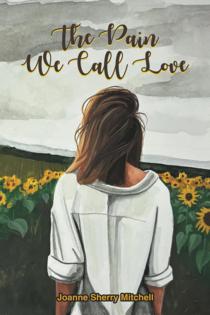Profound poetry examines our shared experiences of love and pain
Published in Mom's Advice
It’s been said that “To love is to suffer. To avoid suffering one must not love. But then one suffers from not loving.” Truer words have never been spoken.
This is the essence of Joanne Sherry Mitchell’s latest collection of contemporary poetry, "The Pain We Call Love," in which Mitchell digs into the harsh realities of love.
Love is complex. Not only does it take on many forms — between parents and children, between siblings, between friends, between lovers — but it can also become so easily muddled up with other emotions like grief, anger and loneliness.
How does a woman react when the man she loves cheats on her? What happens when unconditional love becomes a vulnerability? Where is God’s love when a child becomes inoperably sick? Love can be isolating, it can be performative, it can wither away like a garden left unattended.
Mitchell addresses these complexities with depth and care, revealing universal truths that are hard to describe. The stories and emotions found within these poems are raw and portray an honesty that is so often silent, found solely on the page.
In this, her 13th collection of contemporary poetry, Joanne Sherry Mitchell reveals her strengths as a poet. Through raw honesty, humor and keen retrospection, Mitchell digs into her own life to reveal deeper universal truths.
While her poems range in length, most follow Mitchell’s effective style — poems that are short and pack a punch. Such as with one of my personal favorites, “The Purple Bruise.”
Some of the poems are accompanied by original illustrations by Amanda Clark, who also created the cover art. These mirror the poems in their impactful simplicity, revealing enough without becoming overbearing.
Love and suffering have always gone hand in hand, written and painted about for millennia, as pointed out in the poem “Like Love.” Love has certainly been painful for Mitchell. The poems found in this collection reveal a heart-wrenching portrait of Mitchell’s life: a cheating husband, distant lovers, lost family, sick children.
I found the poems about addiction particularly powerful. They address how hard it is to love an addict and the range of emotions that accompany that love. How does familial love compare to an addict’s love for drugs? And how is love itself an addiction?
But like Mitchell points out in her poem “It’s a Loss,” love is all or nothing. There is no “halfway” love. And to hold something so close means all the more pain when it’s lost, or worse — when it bites you.
I think of all the millions of cells we have in our body, separating by the second. Do they agonize over their separation as I am? Or do they just do it because that’s what you do to live?
To love is to lose, whether by death, separation, time or betrayal. And that’s okay. It’s painful, but that’s life. As they say: “It’s better to have loved and lost than to have never loved at all.”
Or in Mitchell’s own poetic words: Go forward, do not fear a broken heart, for the want of love never dies.
____










Comments